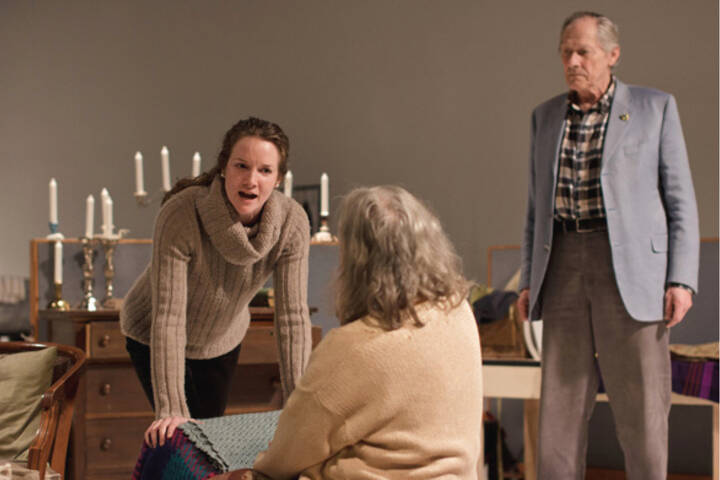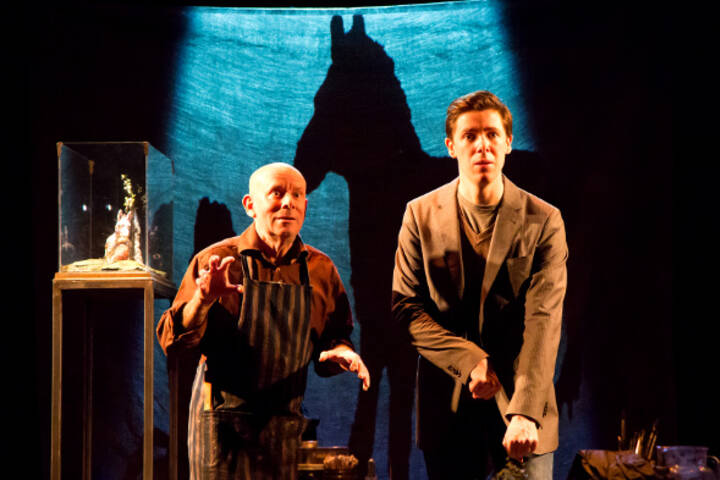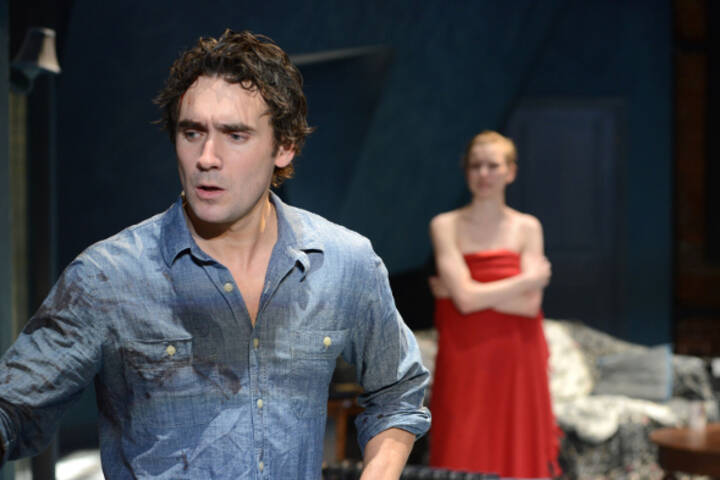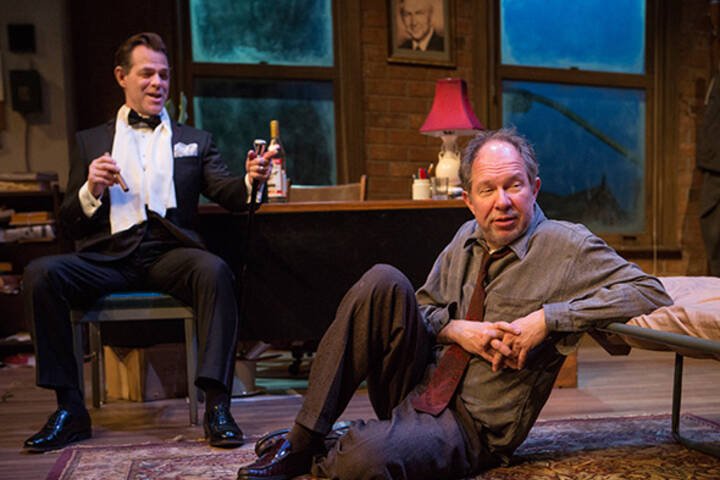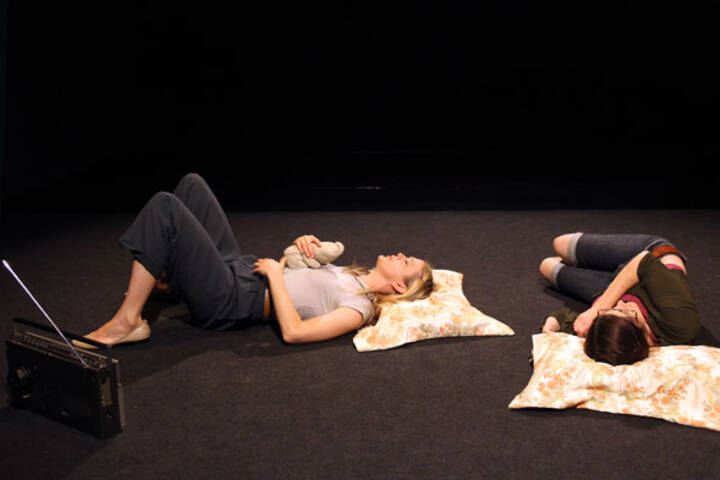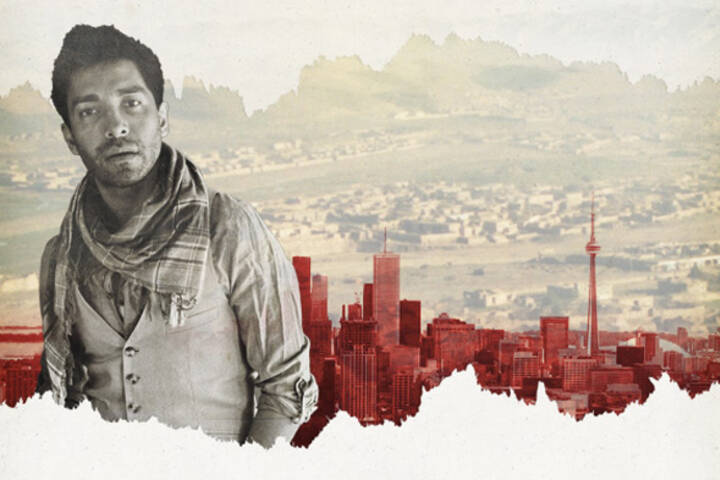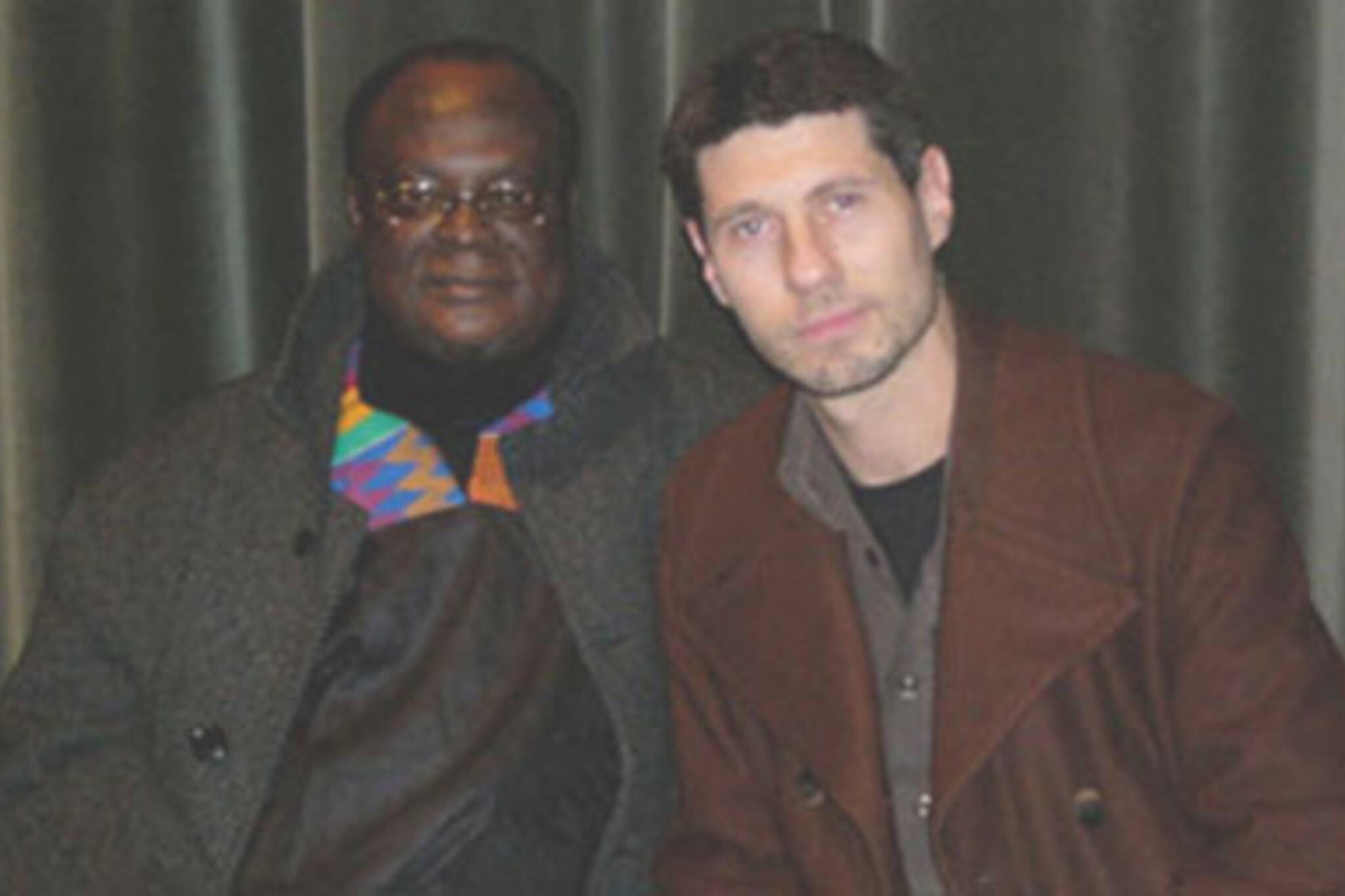
In Focus: Playwright Crosses Continent For Opening
As I enter the Young Centre for the Performing Arts to see the opening night production of AfriCan Theatre Ensemble's Esu and The Vagabond Minstrels. I can see a curious man taking pictures of everything. The walls, the ceilings. I hear an usher asking him to exit one of the rehearsal halls he is peaking into. His curiosity seems peaked. I approach him, inquiring if he can find some time to sit down and talk to me. "I live by the minute, my brother", he responds. "How about this minute, then?", I ask.
Femi Osofisan is a prolific critic, novelist, poet and playwright whose work attacks political corruption and injustice. He has won numerous literary awards and is currently a professor at the University of Ibidan in Nigeria.
The country's leading playwright, following the Wole Soyinka era, was in town this week to see the opening of his 1984 play, Esu and The Vagabond Minstrels. I spoke with Femi about the play, politics and other related issues. He gave me more than just that minute.
The original production of this play came out in 1984. How do you feel about the show and society compared to that time?
"It's an amazing feeling. I feel that about all my plays. It gets me wondering about history you know? Because you write a play and then you say 'wow 10 years later it still relevant.' I don't know whether to be happy or not. (he laughs) When I see it now I find it far more important than when I was saying it then. The whole world has become, now, I don't know, unfortunately very capitalist.
The concern for human beings, for individuals who ask for help, is still an issue!?! 'And we don't have any time. It doesn't affect us anymore', people are just figures... numbers. The need for caring and compassion that I wrote into this play has become even more important today!"
Esu and the Vagabond Minstrels follows the story of five impoverished musicians as they roam hungrily through the streets, hoping to find work. Their journey has brought them (literally) to the crossroads. There they encounter the mischievous god Esu who gives them the power to heal anyone. He tests them to see who uses the power most wisely and unselfishly and who allows corruption to rule their decisions.
The play is filled with dance and music and the story is set up as a play within a play, with actors jumping out of their seats from the audience at the top of the show to 'volunteer' to play certain roles. Femi's writing is meant to include the audience in this sociological study of man. Audiences are spoken to and in the end the role of judge and jury is placed upon them to decide.
The message is clear and Femi has come to Canada to see that the vision is maintained.
"It is always going to be relevant in societies where absolute control is in the hands of multinational companies or big Government. When I wrote it I wasn't thinking only specifically of Nigeria but also of many of the states of Africa. At the time we felt like we were cursed, or possessed some congenital disease. (Small laugh) what I was trying to point out was that it was only like that because the existing conditions were just wrong."
The people of Nigeria and many of the African states tend to come to the theatre as a way to voice their opinions. Many people naturally affected by tyrannical governments that hide behind the mask of democracy, come to the theatre searching for answers or truth. Here in Canada, where the governments are not too dissimilar, we find our general population very complacent and unwilling to come out to the theatre, as they tend to feel that they are not directly affected by the atrocities abroad. What would you say to young playwrights trying to bring people to the theatre for awareness?
"I think, as you said, it is far more difficult to do this here. Today people who have a certain degree of personal comfort. They're not going to care about the general atmosphere of an unjust society. That's what we don't have yet (in Nigeria). Then you get some of those people who are struggling who get, um, absorbed into that...visual class.
So I think it is going to be a bit harder for young Canadian writers who want to write in that kind of way. But there are lots of people of all kinds who want to get involved in all kinds of ways. The whole world, after all, is almost one big building. It's not really very useful to say 'oh it's only far away in Nigeria.
It doesn't concern me in any way' or it's in the Congo or whatever. It does in the end. Is what is happening in Iraq not affecting us? The whole world has become unsafe. You only need to go to the airport to realize that safety does now affect you personally. So we all must get involved in spite of a personal comfort!"
Femi later sent me a poem of his. It said: "Push till the wall falls. Just keep on pushing and the wall will fall."
Esu and the Vagabond Minstrels, produced by AfriCan Theatre Ensemble's , runs until October 28th at the Young Centre for the Performing Arts.
Photo: Femi Osofisan and Jack Grinhaus
Latest Videos
Latest Videos
Join the conversation Load comments
